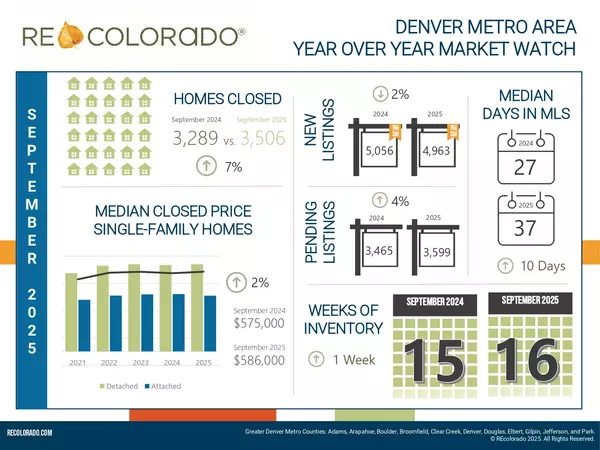Colorado Renters Rights Have Updated As Of October 1st, 2021. Here Is What You Need To Know.
New laws have recently been passed in Colorado which give renters new rights. HB21-1121 and SB21-173 were signed into law this year, which means that renters are now further protected in situations like raising rent, evictions, late fees, and more.

According to CEDProject.org, here are the most important new rights that have gone into effect for Colorado tenants, as of October 1, 2021.
Leases and Rent
- Landlords are prohibited from raising rent more than once per 12-months.
- Tenants without a written rental agreement must be given 60 days notice before rent can be raised.
- Leases cannot contain clauses that award attorney fees to the landlord should they prevail in court. Now, “fee-shifting” clauses will have to award attorney fees to the prevailing party even if it is the renter.
Late Fees
- Landlords cannot charge late fees until 7 days after the rent payment is due.
- No late fee can be greater than $50, or 5% of the monthly rent (whichever is more).
- A tenant cannot be evicted solely because they do not pay the late fee.
- If a landlord has violated the law on late fees, tenants can raise this as a defense to an eviction in court.
- If a landlord violates the law concerning late fees, tenants are entitled to receive between $150 and $1,000 in penalties.
Eviction Process Changes
- Tenants have new rights if their landlord goes to court concerning their eviction.
- If a landlord goes to court to evict the tenant, the tenant now can file their Answer at any time the day the Answer is due. The court must set trial between 7 and 10 days after the tenant’s Answer is filed.
- Tenants can now assert a breach of the warranty of habitability as a defense to eviction in their Answer. This could include essential appliances not working, toxic mold, pest infestations, etc. If the tenant is successful, the court will reduce the amount of rent they are due to the landlord based on the severity of the breach of warranty, order the landlord to fix the habitability issues, and give the renter 14 days to pay the reduced amount of rent.
- Tenants now have the ability to pay the landlord the amount of rent that is due up until the court issues a judgment in the case, effectively stopping the eviction.
- A writ of restitution cannot be executed until 10 days after the judgement is issued. This means that a county sheriff cannot remove the tenant from the property until 10 days after the landlord wins judgement in the eviction case.
If you are a tenant reading this, please reach out if you want to learn about buying a home. We can connect you with some great first time buyer programs!

Categories
Recent Posts

Bringing the Magic Back to Berkeley: Yates Theater’s New Chapter

A Year of Homes & Creativity: What Makes a House Feel Like Home

Denver Real Estate Market 2025: End-of-Year Trends, Inventory & Prices

Should You List or Wait? Why the Holidays Might Be a Better Time to Sell Than You Think

Denver Real Estate Market Update: Fall 2025 Brings a Shift to a Buyer’s Market

Why Black Belongs in Your Home Décor All Year Long

August 2025 Market Stats

LostFork Basecamp: Fall Camping and Cabins in Colorado

Denver Sellers Pulling Back: A Market of Patience

How Local Artists Are Inspiring Home Décor Trends

